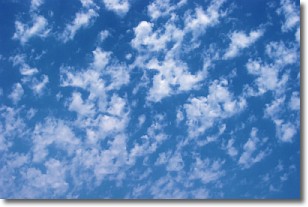Weather Alert in Oregon
Dense Fog Advisory issued August 13 at 1:30AM PDT until August 13 at 11:00AM PDT by NWS Portland OR
AREAS AFFECTED: Clatsop County Coast; Tillamook County Coast; Central Coast of Oregon; South Washington Coast
DESCRIPTION: * WHAT...Visibility one quarter mile or less in dense fog. Beaches, headlands, and coastal areas will be most impacted. * WHERE...South Washington and North and Central Oregon Coast. * WHEN...Until 11 AM PDT this morning. * IMPACTS...Low visibility could make driving conditions hazardous. * ADDITIONAL DETAILS...Fog and low stratus will be patchy along the north Oregon and south Washington Coast, but when it does form, it will be dense. Highest concentration of dense fog will be from Lincoln City south towards Florence. Areas from Cannon Beach north will see fog burn off the quickest in the morning.
INSTRUCTION: If driving, slow down, use your headlights, and leave plenty of distance ahead of you.
Want more detail? Get the Complete 7 Day and Night Detailed Forecast!
Current U.S. National Radar--Current
The Current National Weather Radar is shown below with a UTC Time (subtract 5 hours from UTC to get Eastern Time).

National Weather Forecast--Current
The Current National Weather Forecast and National Weather Map are shown below.

National Weather Forecast for Tomorrow
Tomorrow National Weather Forecast and Tomorrow National Weather Map are show below.

North America Water Vapor (Moisture)
This map shows recent moisture content over North America. Bright and colored areas show high moisture (ie, clouds); brown indicates very little moisture present; black indicates no moisture.

Weather Topic: What is Evaporation?
Home - Education - Precipitation - Evaporation
 Next Topic: Fog
Next Topic: Fog
Evaporation is the process which returns water from the earth
back to the atmosphere, and is another crucial process in the water cycle.
Evaporation is the transformation of liquid into gas, and it happens because
molecules are excited by the application of energy and turn into vapor.
In order for water to evaporate it has to be on the surface of a body of water.
Next Topic: Fog
Weather Topic: What are Fractus Clouds?
Home - Education - Cloud Types - Fractus Clouds
 Next Topic: Freezing Rain
Next Topic: Freezing Rain
A fractus cloud (scud) is a fragmented, tattered cloud which has
likely been sheared off of another cloud. They are accessory clouds, meaning they
develop from parent clouds, and are named in a way which describes the original
cloud which contained them.
Fractus clouds which have originated from cumulus clouds are referred to as
cumulus fractus, while fractus clouds which have originated from stratus clouds
are referred to as stratus fractus. Under certain conditions a fractus cloud might
merge with another cloud, or develop into a cumulus cloud, but usually a
fractus cloud seen by itself will dissipate rapidly.
They are often observed on the leading and trailing edges of storm clouds,
and are a display of wind activity.
Next Topic: Freezing Rain
Current conditions powered by WeatherAPI.com




